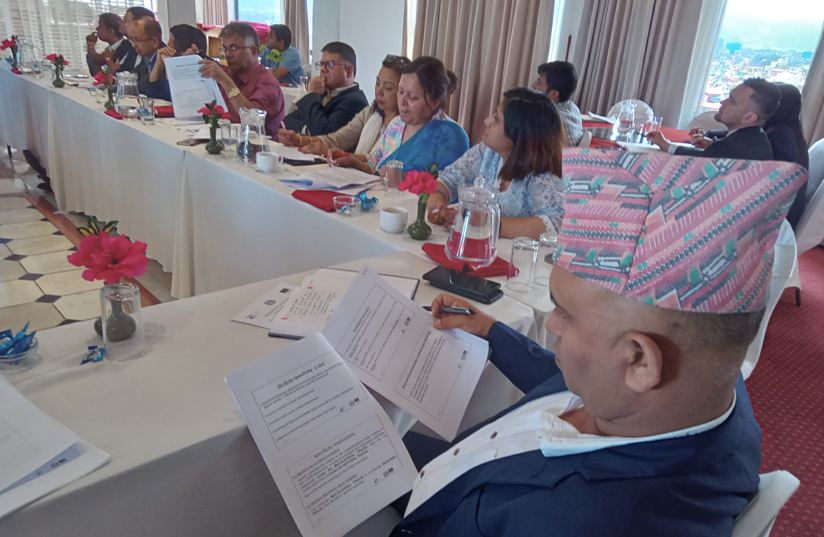 तीव्रखबर
तीव्रखबर

Kathmandu, : A fresh study has emphasized the need for Nepal to adopt a comprehensive approach to navigate the complexities of its upcoming graduation from Least Developed Country (LDC) status in 2026.
Commissioned by the Ministry of Industry, Commerce and Supplies (MoICS) and supported by the European Union Nepal Trade and Investment Programme (TIP), the study was presented at a public-private dialogue on “Nepal LDC Graduation: Report on Trade Policy Reforms to Mitigate the Impact on WTO Obligations.”
The study highlights the necessity for Nepal to reform its legislative and regulatory frameworks, enhance institutional procedures, improve human resource capabilities, diversify export markets, and bolster international collaboration.
Policymakers, trade experts, development partners, and private sector representatives hold a common view that Nepal must expedite legal and policy reforms, and strengthen institutional and human resource capacities to be better prepared to face the post-graduation trade scenarios.
Secretary at the MoICS (commerce and supplies), Krishna Bahadur Raut, who was presiding over the programme, said the government is serious about the concerns raised and suggestions offered by the private sector regarding Nepal’s graduation preparation, expressing commitment to make maximum efforts from the government to ensure post-graduation benefits for Nepal.
Joint Secretary at MoIC Dev Raj Joshi said Nepal’s graduation presents both challenges and opportunities adding that Nepal needs to continue to reforms in trade-related policies and laws.
Purushottam Ojha, a trade expert and former Commerce Secretary, emphasized the importance of adhering to new WTO obligations, including agreements on agriculture, subsidies, Agreements on Trade-Related Aspects of Intellectual Property Rights (TRIPS), and Trade Facilitation Agreement (TFA) for smooth transition.
An International Trade Expert from the International Trade Centre, Abhijit Das, cautioned that the transition leads to stricter rules and reduced benefits, such as the loss of lower tariffs stressing the urgent need to implement the action plan to ensure a smooth transition from LDC status.
President of the Federation of Nepal Women Entrepreneurs’ Association (FWEAN), Shobha Gyawali, said that Nepal is not yet mature enough for LDC graduation adding that women entrepreneurs’ benefits from international trade must be ensured.
Other representatives of the private sector said graduation seems without due preparation given the low competitiveness of Nepali businessmen and the higher cost of production and export compared to other countries.
The study also cautioned that Nepal will lose trade preferences under the Generalized System of Preferences (GSP) and Duty-Free Quota-Free schemes, potentially leading to higher tariffs on exports.
It recommends conducting detailed diagnostic studies to identify vulnerable products and markets, exploring alternative trade arrangements like GSP-Plus in the European Union, and raising industry awareness through workshops.
Strengthening national capacity to address non-tariff barriers, developing national standards, forming mutual recognition agreements (MRAs) with key trade partners, promoting products prioritized by Nepal Trade Integration Strategy (NTIS) 2023, drawing lessons from other LDC-graduated countries, fostering partnership among governments, private sector, and international partners, are also among the recommendations by the study ensure a successful transition mitigating the impacts of LDC graduation.
प्रतिक्रिया